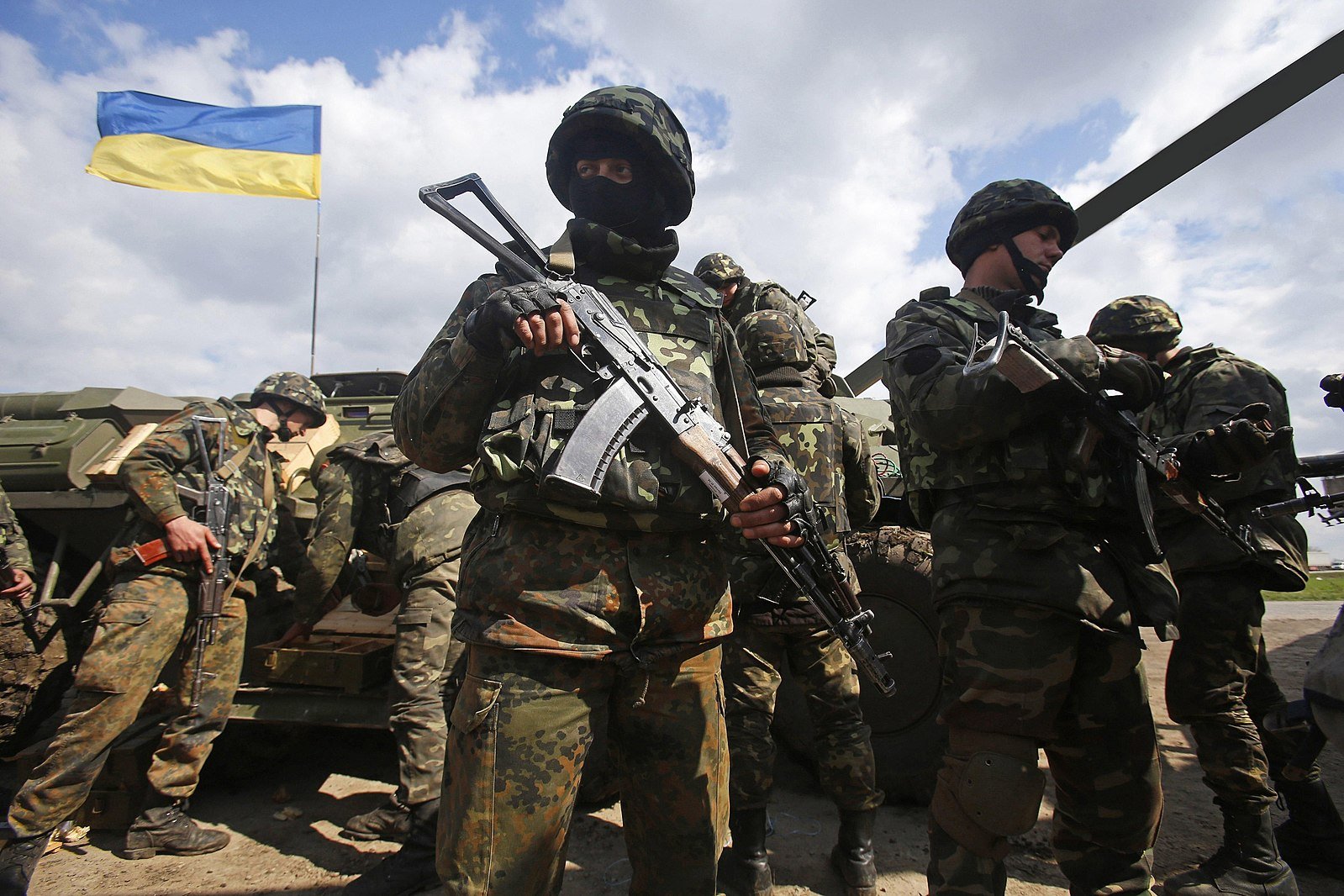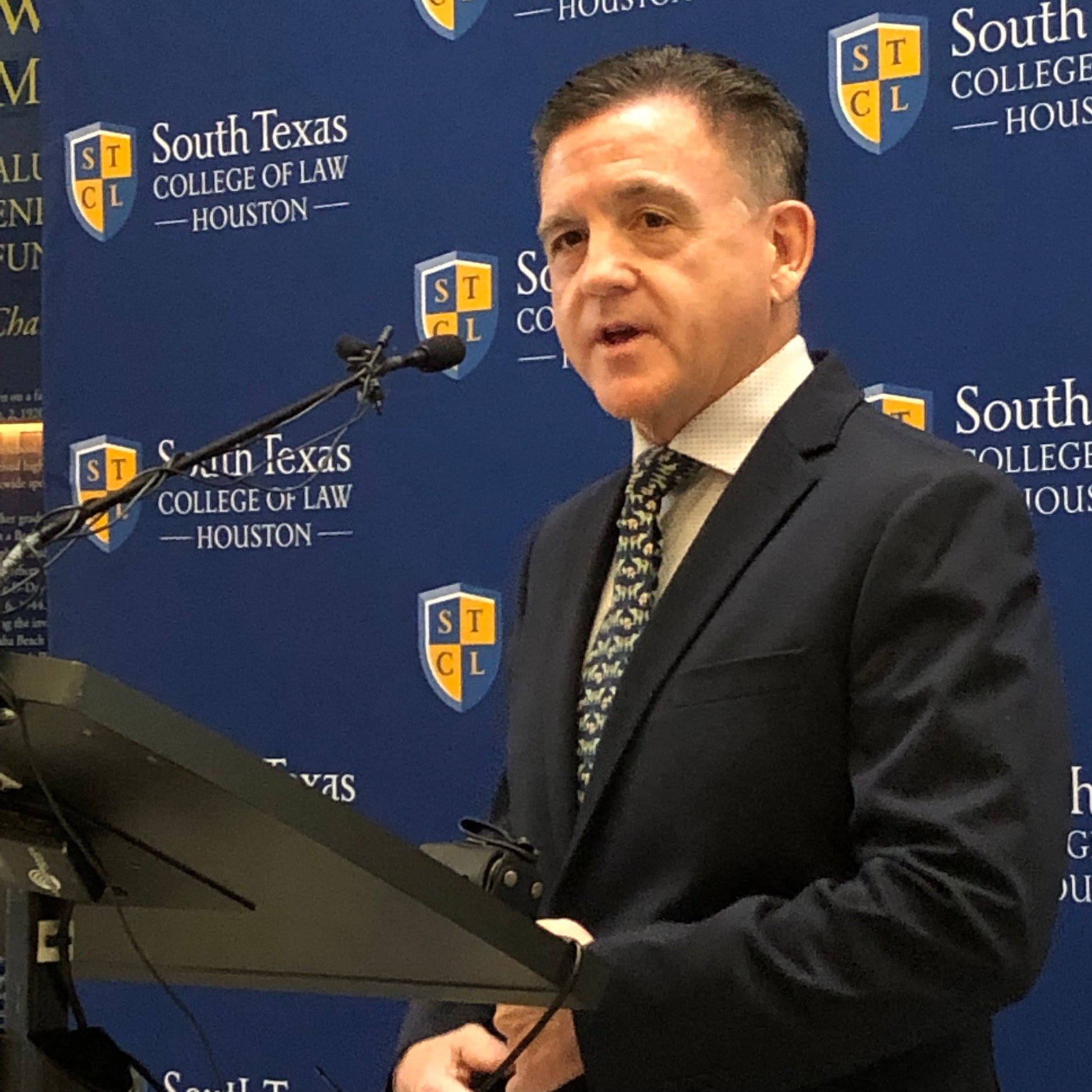
Following a call to arms by Ukrainian President Volodymyr Zelensky, at least 16,000 volunteers from 52 countries around the world are arriving in Ukraine to join the ranks of its defenders. Official Russian communications were quick to threaten this modern-day foreign legion with a nasty fate if captured. One tweet incorrectly called such foreign fighters “contractors” and said that “All such mercenaries are not combatants under intl humanitarian law and not entitled to prisoner of war status.” Last Thursday, Russian Defense Ministry spokesman, Igor Konashenkov, upped the ante by saying, “At best, they can expect to be prosecuted as criminals.”
Further complicating matters since then is news that Russia is recruiting its own foreign fighters: individuals from Syria to fight on its behalf. So far, approximately 1,000 foreign nationals have joined the Russian effort.
For its part, Ukraine, too, has changed its own position regarding sending captured Russian belligerents back to Russia. Reporting suggests that Ukraine is contemplating putting captured Russians to work at hard labor. As many of these captives will qualify as prisoners of war (POW), how they are “put to work” by Ukraine will be constrained by the Geneva Prisoner of War Convention. But most importantly, unlike Russia, Ukraine appears to care about complying with international law, which means the prospect of a Ukrainian version of the Bridge on the River Kwai is unlikely.
However, no one should underestimate Russia’s willingness and ability to advance disinformation narratives built on a foundation of distorted assertions about international law. Russia’s dissemination of false information about the status of foreign nationals fighting on behalf of Ukraine must not be allowed to create confusion about their rights and Russia’s responsibilities under international law. Indeed, Russia’s disinformation campaign underscores how critical it is for all nations whose citizens are joining the fight to understand the laws of war relating to the legal status and protection of captured individuals. In addition, it is of the utmost importance that Ukraine does not submit to possible temptation to take the proverbial bait and mistreat captured Russians in retaliation for likely Russian abuses.
First and foremost, it is up to Ukraine to decide who is incorporated into its armed forces. While international law defines what fighters are entitled to combatant/prisoner of war status, domestic law defines who is or is not a part of national armed forces. Thus, if Ukraine chooses to incorporate foreign fighters into the Ukrainian Army, subject to appropriate command and control, they will qualify as combatants fighting for Ukraine for purposes of the law of war, which means that if captured they also qualify as prisoners of war.
It is also critical to grasp the meaning of combatant status. Combatants, regardless of their country of origin, are vested with the international legal “privilege” to engage in hostilities during an armed conflict. This means that if captured, the combatant not only qualifies as a prisoner of war protected by the Geneva Prisoner of War Convention; it also means that the POW is immune from criminal punishment by the capturing enemy for violent action prior to capture, as long as that conduct complied with the laws and customs of war. This protection is known as combatant immunity.
That same Geneva Convention defines which captives are entitled to this status and protection. First, they must be fighting on behalf of a State in a conflict against another State. Second, they must fall into one of a number of categories of qualified individuals. The most obvious are members of the armed forces. However, the Convention also extends this status to members of other militia and volunteer corps fighting on behalf of a Party to the conflict – even members of organized resistance movements in occupied territory – provided that they carry arms openly, wear a fixed and distinctive emblem recognizable at a distance, operate under responsible command, and comply with the laws and customs of war. The volunteers to Ukraine would likely fall into one of these categories.
Contrary to Russian disinformation, a person who volunteers to serve in the armed forces of another State is not necessarily a mercenary. A mercenary is someone who participates in the conflict for private economic reward and is compensated at a rate substantially higher than the soldiers involved in the conflict. This definition is included in Article 47 of a 1977 treaty that supplemented the Geneva Conventions, Protocol I Additional to the Geneva Conventions of 1949, a treaty binding both Russia and Ukraine. Since the volunteers who have joined Ukraine in the fight against Russia are not motivated by economic gain and are probably not even being paid by Ukraine, they could not possibly count as mercenaries for purposes of Protocol I.
Russia’s claim that such volunteers may be prosecuted as war criminals simply by virtue of joining the fight is an even grosser distortion of the law of war. Volunteering to fight for Ukraine is simply not a war crime. Even if they fail to meet the combatant/POW qualifications, the only consequence is that they may be subject to prosecution for violating Russian (not international) law. Of course, combatant immunity in no way shields a POW from individual criminal responsibility for violations of the laws and customs of war. When the acts of combatants fall beyond the scope of permissible wartime conduct, the immunity provided by international law is no shield to criminal sanction. In other words, POWs can be punished for war crimes, but when they fight in accordance with the law of war, it is absurd to characterize them as war criminals.
There are several layers of irony here. First, Russia is threatening to criminally punish foreign volunteers whose participation in hostilities is protected by combatant immunity. At the same time, Russia’s own combatants are committing blatant war crimes by deliberately and indiscriminately conducting attacks on civilians and civilian property for the ostensible purpose of spreading terror among that population. These actions are blatant war crimes that exceed the protection of combatant immunity. Moreover, unlike the volunteers flowing into Ukraine, Russia’s use of the Wagner Group – a private military contractor that, according to Russia is not part of the Russian armed forces – genuinely raises the issue of employing mercenaries. In short, Russian political and military leaders and the subordinates they command are the ones who bear responsibility for war crimes in the current conflict, not Ukraine or individuals volunteering to fight Ukraine.
Sadly, Russia may find ammunition to support its disinformation campaign in the U.S. “War on Terror” arsenal. Russia may very well invoke the “precedent” of the U.S. decision to deny Taliban and al Qaeda captives prisoner of war status. Pursuant to his February 7, 2002, memorandum, President Bush declared that members of the Taliban and Al Qaeda failed to qualify as prisoners of war. Instead, these captives were initially designated as “unlawful combatants,” a confusing term later abandoned in favor of “unprivileged belligerents.” Both, however, meant the same: they would be detained for the duration of hostilities like any other prisoner of war, but would not qualify for that status or protection of the combatant’s privilege. This set the conditions for authorizing the torture of these captives – treatment that violated international law even for unprivileged belligerents, but that would have been more obviously a war crime had they qualified as prisoners of war.
That U.S. policy decision – which no President since 2002 has reversed – was a mistake. To paraphrase Justice Robert Jackson’s warning in his dissenting opinion in the infamous Japanese internment decision Korematsu v. United States, once adopted by a nation like the United States, “The principle then lies about like a loaded weapon, ready for the hand of any authority that can bring forward a plausible claim of an urgent need.” No one should be surprised that when one State “pushes the envelope” of international law others will seek to fill that space in the future. This is why being precise about the factual distinctions between these conflicts is so essential.
We cannot control what Russia does with those they capture during the course of this armed conflict, a conflict likely to evolve into a long-term and bloody occupation. However, we can insist on clarity about the legal status of those we capture – just as we demand it of Russia – based on the Geneva Conventions and principles of customary international law. And, that clarity should be leveraged to put Russian commanders on notice that the international community will never cease its efforts to hold them accountable for failing to comply with international law. It may be that they will be able to avoid that accountability for a long time, but they should never stop wondering when they might be held to account for such violations. Nor should U.S. leaders overlook the more subtle lesson we are being reminded of: that clarity about the laws of war, and consistency in our adherence to such laws in our own practice, are the best – indeed the only – protection we can offer US persons captured in combat abroad in a fight to which the U.S. is not a party.

Geoffrey Corn
Geoffrey Corn is the Gary A. Kuiper Distinguished Professor of National Security Law at South Texas College of Law Houston and a retired U.S. Army Lieutenant Colonel who served as the Army’s senior law of war advisor.

Claire Finkelstein
Claire Finkelstein is the Algernon Biddle Professor of Law and Professor of Philosophy as well as the Faculty Director of the Center for Ethics and the Rule of Law at the University of Pennsylvania.






